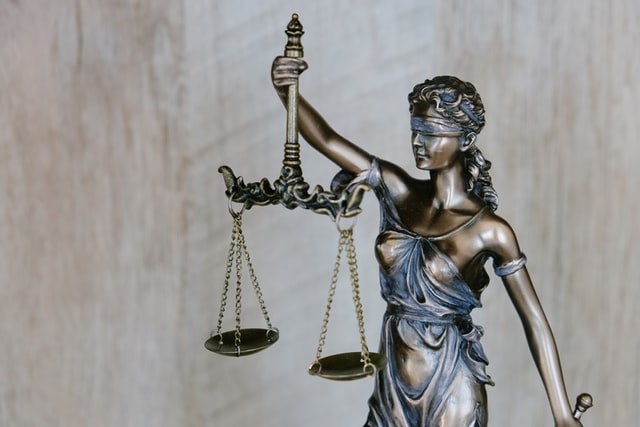
Guardianship of an Elder
This article has been reviewed by a practicing attorney in 2020
This content is not intended to be a substitute for professional legal advice. Always seek the advice of an attorney or another qualified legal professional with any questions you may have regarding your situation.
As our loved one’s age, many caregivers may find themselves in the difficult position of watching their elder become incapacitated due to age, illness, or a disability. A common question among caregivers is how to manage their loved one’s day-to-day affairs and make health care or financial decisions on their elder’s behalf when he or she is incapable of the same. A power of attorney (“POA”) is a useful tool for caregivers to manage their elder’s affairs without court intervention. But what happens when our loved one refused or simply never got around to creating a POA? Caregivers may still be able to manage their loved one’s affairs through guardianship, discussed below.
What is It?
A guardianship (sometimes called a “conservatorship”) is the legal relationship created by a court between a “guardian” and a “ward.” At its most basic, a “guardian” (sometimes called a “conservator”) is appointed by the court to care for and make decisions on behalf of a person, a “ward,” who is no longer able to make rational decisions and care for himself or herself. Note, a court may appoint a guardian for a person of any age, but for the purposes of this article, we focus on guardians appointed for the elderly.
Signs Your Loved One May Need a Guardianship
Knowing when your loved one needs a guardianship can be tricky. Below are some signs that your elder may no longer be able to care for himself or herself:
- Consistently failing to pay bills on time, if at all;
- Consistent mismanagement of money;
- Missing doctor’s appointments;
- Not taking prescription medications;
- Not making food or not eating food without someone else’s help;
- Not bathing properly, if at all;
- Inability to move around the house by himself or herself;
- Misplacing items and being unable to retrace steps to find them;
- Going for a walk and being unable to find his or her way back to the house.
Our article regarding dementia red flags and the SAGE test may also be a helpful resource for identifying memory loss or other health issues. If you suspect your loved one may be losing the capacity to care for himself or herself, it may be beneficial to schedule an appointment with a geriatrician who can examine your loved one to help make this determination.
Process for Acquiring Guardianship
Unfortunately, the process of appointing a guardian over an individual can be lengthy and costly. The person seeking guardianship must petition the court for guardianship over the elder. After the petition is filed, the court may appoint a “guardian ad litem,” which is an attorney who acts in the best interest for the elder, if he or she does not already have a personal attorney. Thereafter, the court will hold a hearing to determine whether the elder is “incompetent” or “incapacitated.” This is the heart of the guardianship proceeding because a court will only appoint a guardian over an individual if that person is found to be incompetent or incapacitated. Each state has its own definitions concerning incapacity and incompetency. Generally, a person is considered incapacitated or incompetent when they are no longer able to manage their own affairs or maintain their physical well-being. It is common for people with Alzheimer’s and dementia to be declared incapacitated, although incapacity is not limited to these diagnoses. In many circumstances, the court will expect medical evaluations of the elder, which may include live testimony at the hearing from the elder’s physicians. In some cases, a court may even retain a psychiatrist or psychologist to assist in the determination. When deciding whether to create a guardianship, a court must delicately weigh concerns for the elder’s safety with removing the elder’s independence and control over his or her own life.
If a court determines the elder is partially or fully incapacitated or incompetent, it will appoint a guardian over the elder. A guardian must be over the age of 18 and is typically a close family member or friend of the elder. Because the guardian will be responsible for making decisions on the ward’s behalf, many states will not allow individuals with criminal records to be appointed as a guardian.
Courts may create a full or a partial guardianship over an individual, depending on the specific facts of the case. For example, Barry is unable to safely care for himself anymore. His mortgage is past due, he rarely bathes, he forgets to take his prescription medications, and he only eats meals if someone else makes them for him and feeds them to him. Given Barry’s condition, a court would likely create a full guardianship over him. Conversely, Barbara frequently forgets to pay her bills on time, but she manages her day-to-day activities such as bathing herself, making herself meals, and taking her prescription medications. In this circumstance, the court may appoint only a limited financial guardian to manage Barbara’s finances for her, leaving her some sense of independence.
Guardian Duties
In establishing a guardianship, the court grants the guardian specific rights and duties. It is important to understand that guardianship will not be granted if someone possesses a POA concerning the same issue. Take Barbara from the above example, if she executed a POA giving her son, Simon, a POA over her financial affairs, that POA would control. The court would not grant someone else guardianship over Barbara’s financial affairs when she executed a POA granting Simon the same powers.
Common powers given to guardians include the power to:
- Make healthcare decisions on the ward’s behalf;
- Make healthcare appointments on the ward’s behalf;
- Hire an in-home nurse to care for the ward;
- Decide where the ward will reside (such as in an assisted living facility);
- Pay the ward’s bills;
- Manage the ward’s taxes;
- Make certain financial decisions on the ward’s behalf.
It is important to note that, sometimes, a court will restrict the guardian’s power to act and require court approval before a guardian may take certain actions on the ward’s behalf, such as moving the ward from his or her home and into an assisted living facility.
Emergency Guardianship
A court may grant emergency guardianship upon an emergency when a ward suddenly becomes incapacitated or debilitated. Importantly, this type of guardianship is temporary, and a court will generally grant the guardian very specific powers. Similar to the process for obtaining a regular guardianship, to obtain an emergency guardianship, it must be shown that the elder is incapacitated, that he or she is incapable of making rational decisions and/or is unable to care for himself or herself. While each state’s guardianship laws vary, generally, it must also be shown that there is a risk of harm to this individual if a guardian is not appointed. Finally, the court must also find that there are no alternatives to emergency guardianship, namely that the elder did not execute a legal document appointing someone as a legal guardian or POA.
Alternatives to Guardianship
As explained above, creating a guardianship can be a lengthy and expensive process. Moreover, the person appointed as guardian for the ward may not be the individual the ward would have chosen. Some helpful guardianship alternatives allow the elder to choose, before incapacitation, the person he or she wants to oversee his or her affairs. POAs are a legal instrument that give the elder this power to choose. See our article on POAs for more information. Similarly, in a living will, an elder may appoint a representative to make decisions on his or her behalf if the elder is suddenly incapacitated. Living wills also often contain advanced directives, which provide specific instructions concerning the types of medical treatments the elder would like to receive in the event he or she is unable to communicate the same.
Consulting an Attorney
If you are a caregiver seeking to establish guardianship over a loved one, it is important that you speak with a local attorney to understand your state’s process for creating a guardianship. If your loved one is still able to make rational decisions and to care for himself or herself, it may be worth discussing a POA, a living will, or an advanced directive with your loved one and an attorney, to better prepare for your elder’s future.
Sources:
- Specialists in Aging: Do You Need a Geriatrician?, Johns Hopkins Medicine, www.hopkinsmedicine.org
Related Articles

Burial Insurance: Everything You Need to Know
If you have an elderly loved one, you may be considering burial insurance. This is a type of life insurance that specifically covers final expenses. A 2020 report on life insurance policyholders found that 84% of those that buy life insurance, do so to cover end-of-life expenses. Considering that the majority of people who have […]

Where There’s a Will, There’s a Plan
This article has been reviewed by a practicing attorney in 2020 This content is not intended to be a substitute for professional legal advice. Always seek the advice of an attorney or another qualified legal professional with any questions you may have regarding your situation. There are many types of estate planning documents you can […]

Elder Law Attorneys: A Comprehensive Guide
If you are someone who is taking care of a senior or has an elderly loved one, you should consider working with an elder law attorney. Though you may not expect it, individuals begin to face new and more complex legal concerns as they get older. Actions that may have seemed trivial when they were […]

Trusts: What is One and How do They Work?
Estate planning is an integral part of planning for seniors. There are many different forms of estate planning and various tools available to use. One estate planning tool that can be helpful for many seniors is a trust. They can serve many different purposes and are a great estate planning tool, regardless of your estate’s […]

Lady Bird Deeds: A Complete Overview
This article has been reviewed by a practicing attorney in 2020. This content is not intended to be a substitute for professional legal advice. Always seek the advice of an attorney or another qualified legal professional with any questions you may have regarding your situation. A deed is a formal legal document that, when signed […]

Understanding Trust Beneficiaries
This article has been reviewed by a practicing attorney in 2020 This content is not intended to be a substitute for professional legal advice. Always seek the advice of an attorney or another qualified legal professional with any questions you may have regarding your situation. Trusts are common estate planning instruments used to manage and […]